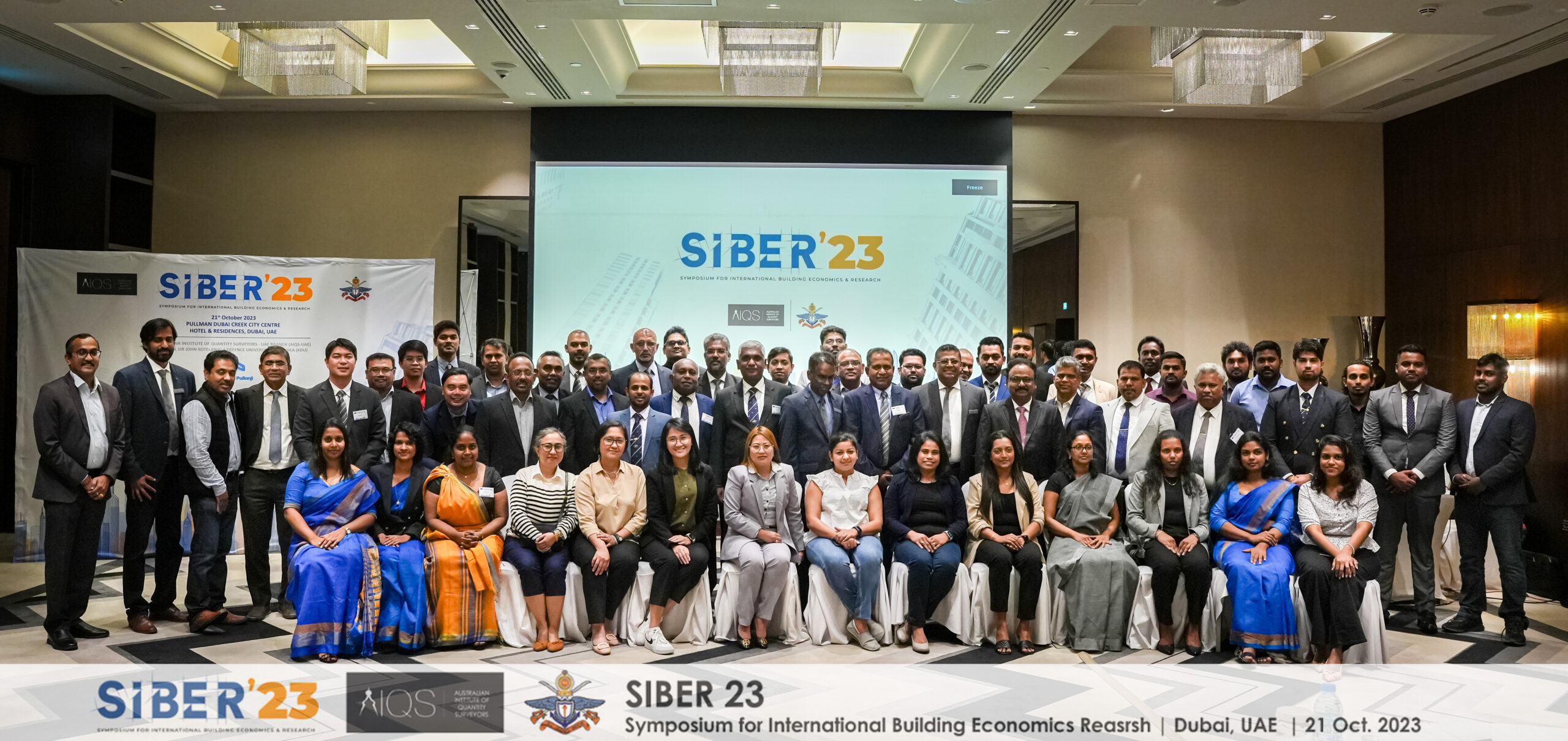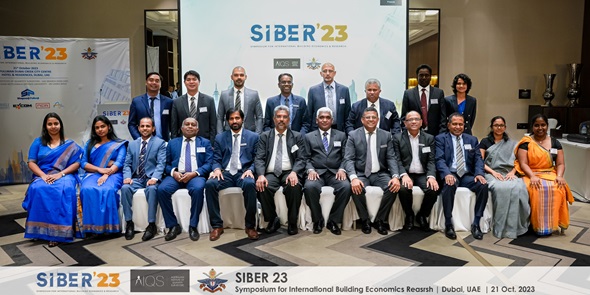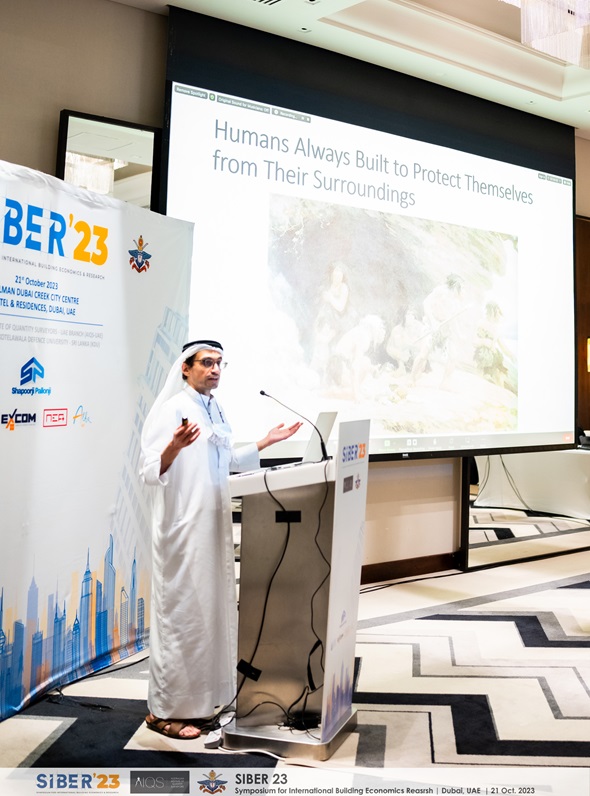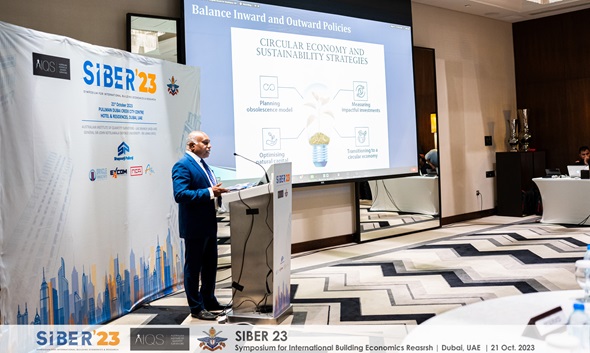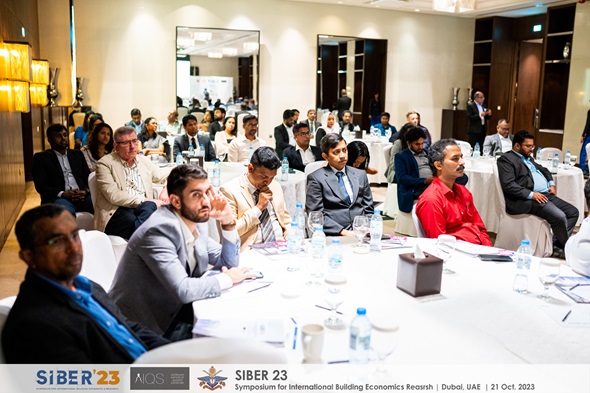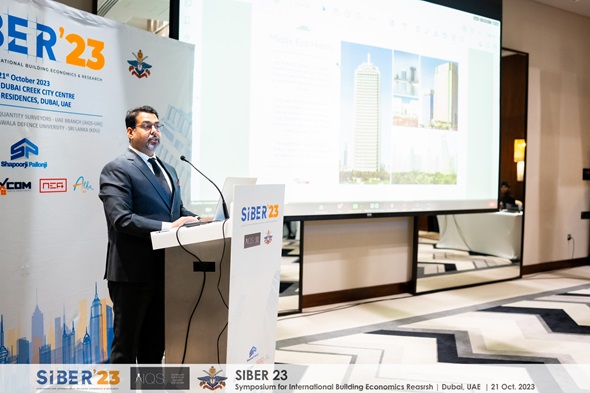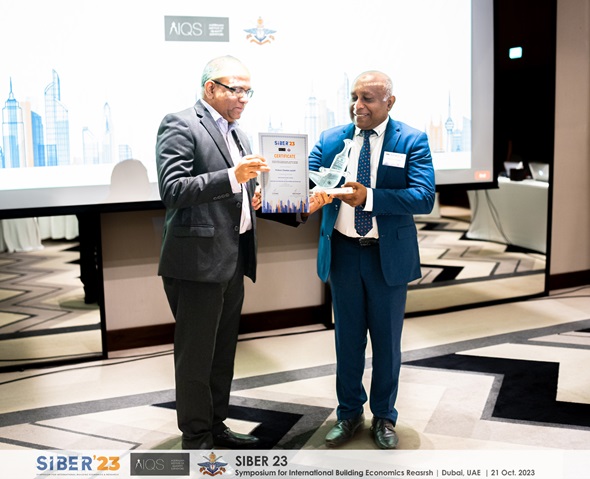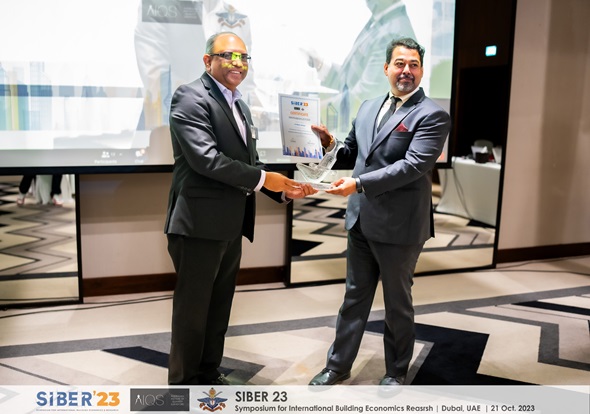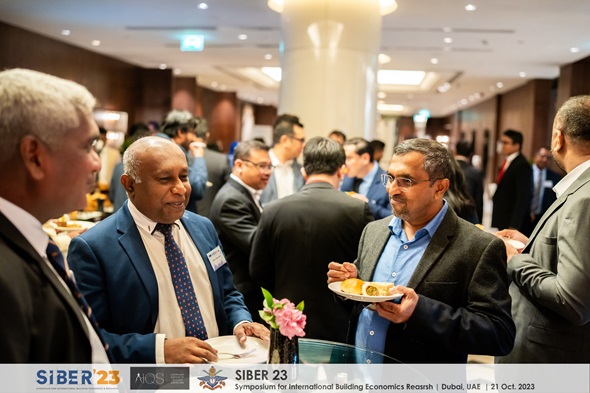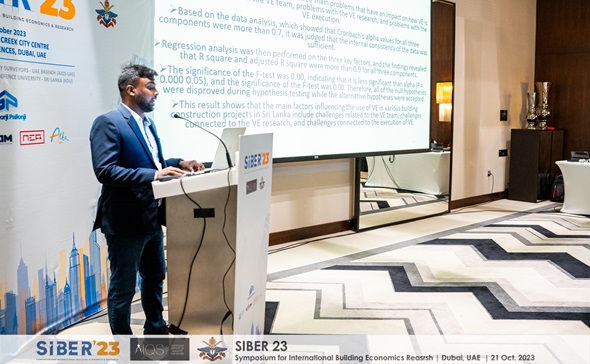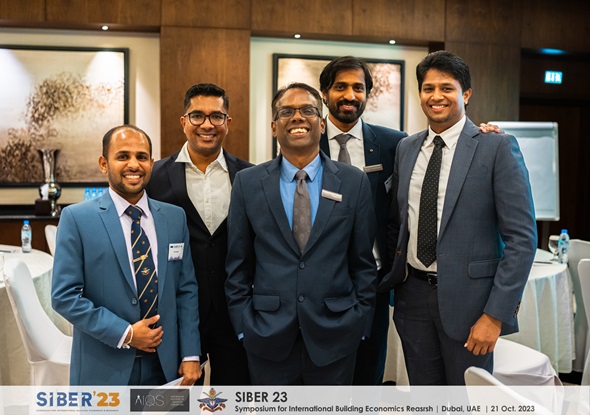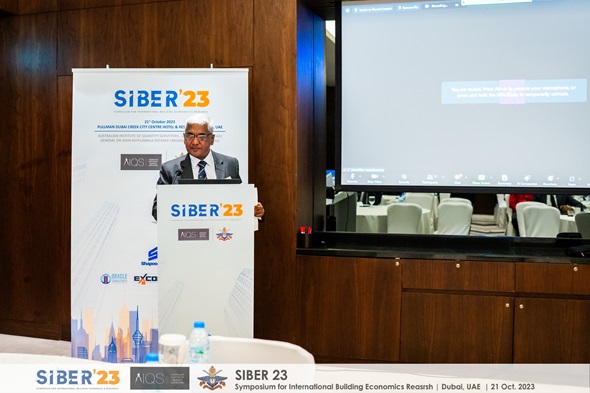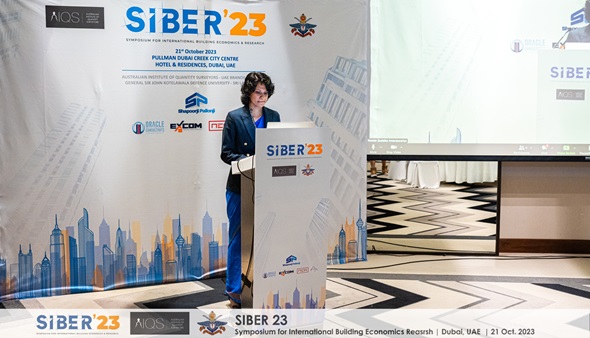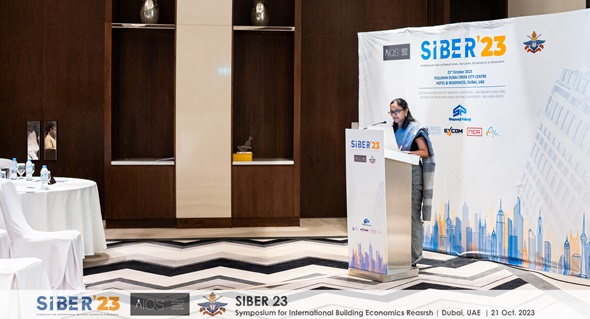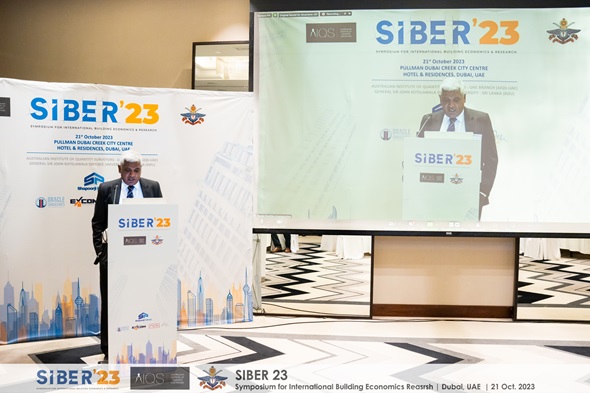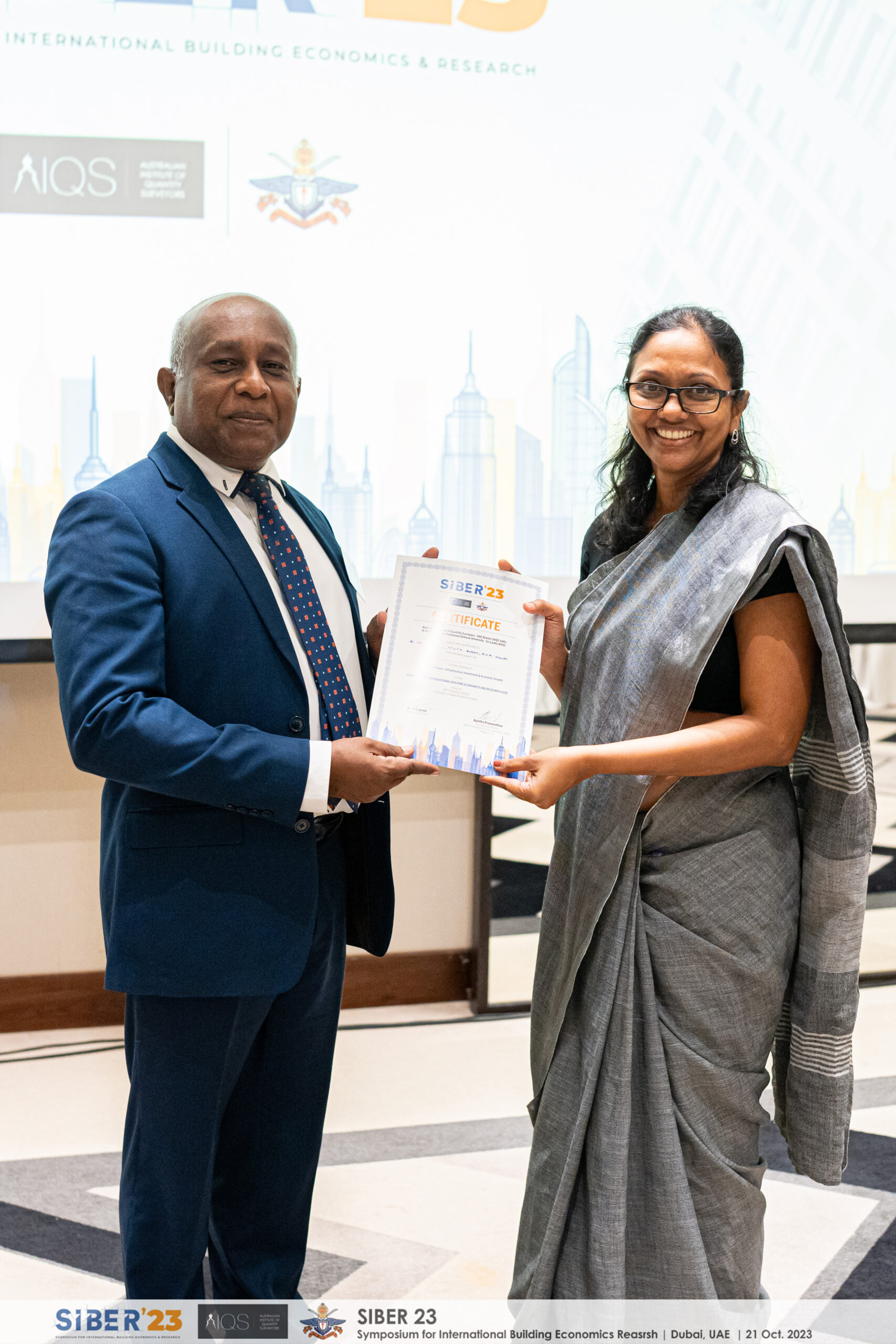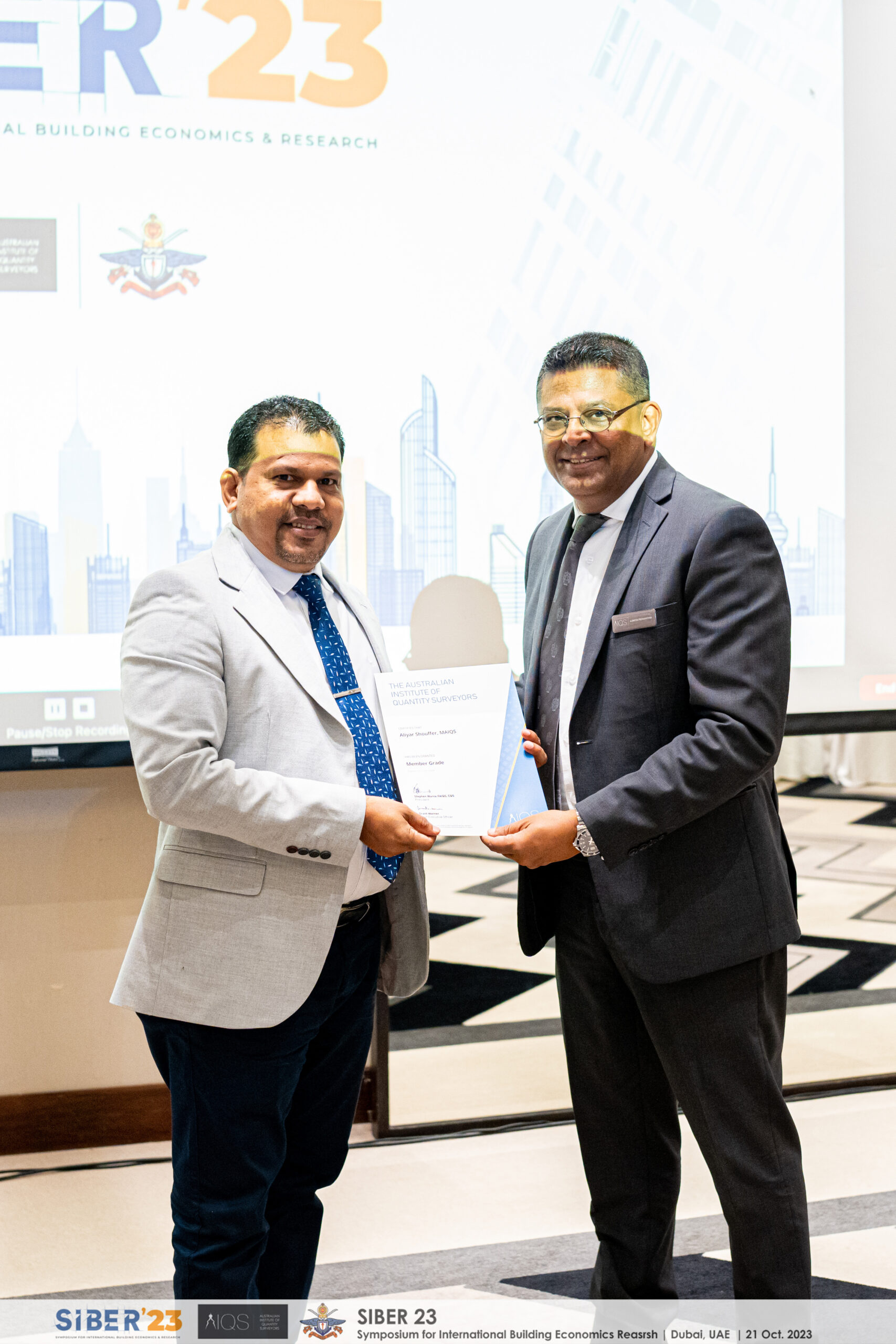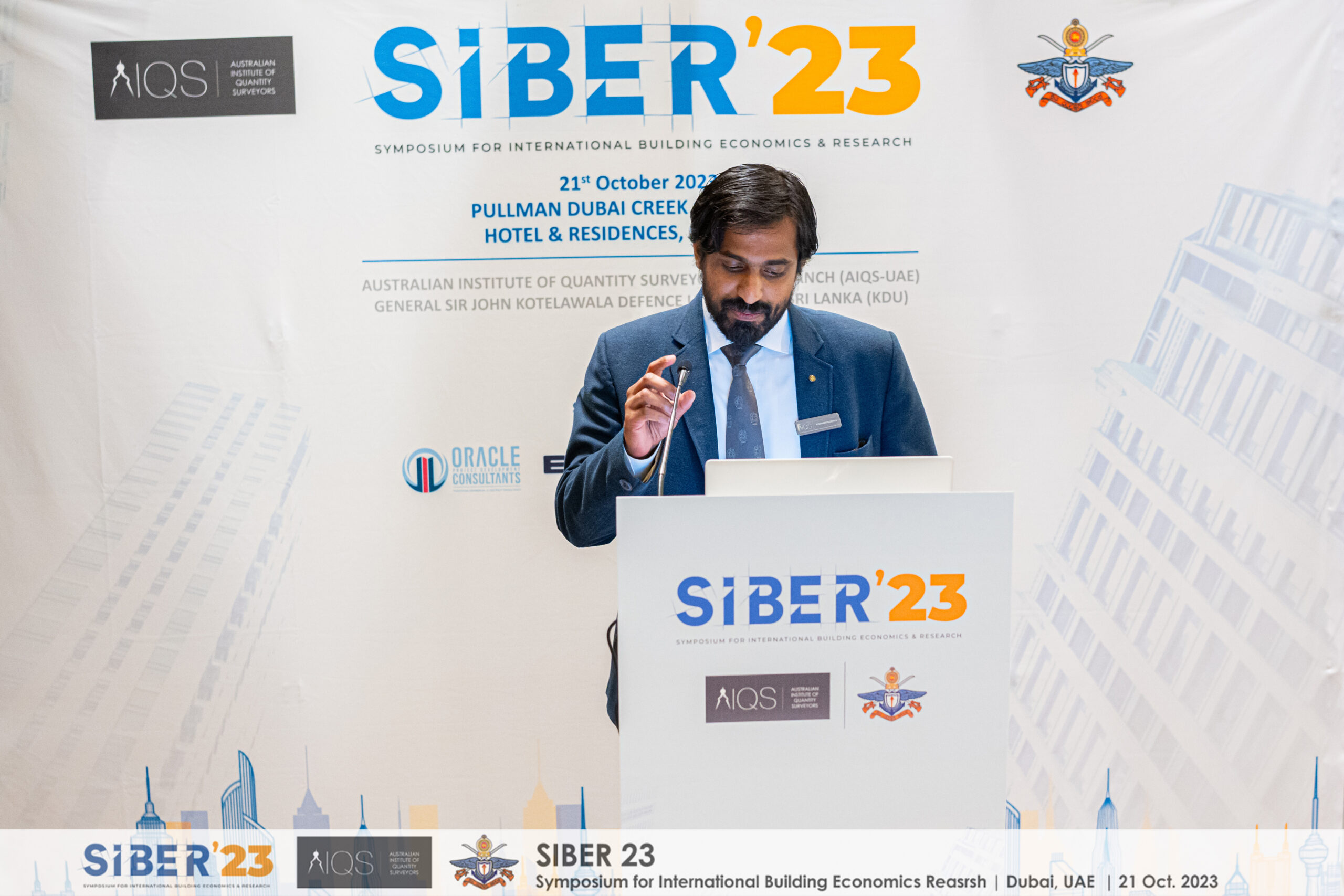Symposium for International Building Economics and Research (SIBER 2023) by the Australian Institute of Quantity Surveyors- UAE branch (AIQS-UAE), partnered with General Sir John Kotelawala Defence University, Sri Lanka (KDU)
The world of research is vast and ever evolving, making it a crucial platform for scholars, experts, and enthusiasts to come together and share their insights, discoveries, and visions. The recent research symposium served as one such notable platform, bridging gaps and fostering connections. The department of Quantity Surveying at KDU, express gratitude to all those involved in making this Maiden Conference a thrilling success and for this enriching experience.
The Symposium for International Building Economics and Research (SIBER 2023) organized by the Australian Institute of Quantity Surveyors- UAE branch (AIQS-UAE), spearheaded by Ajantha Premarathna, President of International Chapter (Region-2) of AIQS partnered with General Sir John Kotelawala Defence University, Sri Lanka (KDU) under the theme “Built Environment for Macroeconomics” was held on the 21st of October 2023 at the Pullman Dubai Creek City Centre Hotel And Residences, Dubai, United Arab Emirates. The symposium was chaired by Dr. AH Lakmal, Dean, Faculty of Built Environment and Spatial Sciences, KDU.
The Symposium consisted of an inaugural session and three technical sessions. The keynote speaker for the inaugural session was Professor Chandana Jayalath who addressed on the Protocol for a New World Order of Resilience and the Link between Macroeconomics and the Built Environment. The Three plenary speakers included Professor Abdulla Galadari, Dr. Ashok Ganapathy Iyer and Dr. Ritesh Jamaiyar.
What stood out prominently at the symposium was the diversity of topics presented. From sustainability to macroeconomics the event was a testament to the vastness of human inquiry. This diversity, however, was unified by a shared vision: to enhance our understanding of the world and seek solutions for its betterment. For this Symposium 16 papers were selected, subjected to a rigorous process of evaluation by experts which included double peer reviews.
The first technical session commenced under the theme “Protocols for Sustainability: Showcasing Building Performance & Energy Efficiency“.
Papers included were,
- A Guide to Enhance Project Value by Integration of Value Engineering as a Tool for Sustainable Construction Projects in Sri Lanka
WMBK Marambage and KPSPK Bandara
- Framework for Adopting the Deconstruction Methodology for Sri Lankan Building Construction Projects
ST Kulathunga and WN Kaumudi
- A Comprehensive Review of the Sustainable Concepts Employed in Sri Lankan Construction Industry
T Vaitheki
- Factors affecting for the application of Value Engineering in Variations: Sri Lankan construction industry perspective
HALV Silva, VMT Vitharama and KPSPK Bandara
These papers discussed crucial aspects of the built environment such as value Engineering, sustainable construction, Deconstruction, cost cutting and variations as well as the Sri Lankan Construction Industry.
The second technical session explored the theme “Built Environment: The Socio-Economic Perspective” and the session consisted of eight papers which divided into two sessions.
Phenomenal papers included,
- Function of Building Information Modeling in Overcoming Barricades for Sustainable Construction Techniques
K Anojan, KCW Liyanage and KPSPK Bandara
- Management of the Risks on Public Safety and Security Issues in the Sri Lankan Road Construction Projects
RBBA Hemakumara and DMS Jayasuriya
- Identification of the Cost Impact of Commercial Green Building Projects in the Sri Lankan Construction Industry; Investors’ Perspective
PGYN Wimalasiri and WN Kawmudi
- Strategies for Adding Universal Design Principles for Public Buildings in Sri Lanka
MKM Nilupulee, KPSPK Bandara and MKP Jayani
- Application of Digitalization within the Construction Industry in Sri Lanka
SS Mathangaweera, KSKNJ Kudasinghe and KPSPK Bandara
- Strategies to Apply Blockchain Technology to the Sri Lankan Construction Industry to Mitigate Financial Disputes and Enhance its Contribution to Economic Growth
KPSPK Bandara, MKM Nilupulee and MHN Fernando
- Impact of Quantity Surveying Practices Towards Construction Insolvency Stimuluses’ for Sri Lankan Contractors
CD Weerakkody and DMS Jayasuriya
- Bid evaluation on Design and Build Contracts in Sri Lanka: unsuccessful bidder’s appeal on award of contracts on public projects
AARK Amaratunga, WP Edirisinghe and AASP Amaratunga
This session dowelled into topics such as building information modelling, public safety and security, how to gain Investors for Sri Lanka, universal designs, infrastructure development, Digitalisation, block chain technology, contracts and appeals, and the topics that have the potential to enhance the socio-economic side of the built environment sector.
The third technical session was conducted under the topic “Envisioning the Future: Infrastructure Investment & Economic Growth“.
Papers included,
- Fostering Equity and Economic Growth of Marginalized Communities through Inclusive Infrastructure; The case of Sri Lanka
UM Smararathna, WN Kawmudi and AH Lakmal
- A Study on the impact of the Construction Industry to Sri Lanka’s National Economic Growth
WDBJ Jeewananda, KPSPK Bandara, GC Ratnayake and RH Fernandez
- Emergency Procurement in the Sri Lankan Construction Industry: Processes, Barriers, and Solutions
IUT Jayawardena, KSPK Bandara and WANM Weerasinghe
- Establishing Hydropower Plants in Sri Lanka: Gains and Drawbacks
BC Dharmawardhana, KPSPK Bandara and MKM Nilupulee
These researches consisted important topics such as inclusive infrastructure projects, economic growth, emergency procurement and Hydropower Plants in Sri Lanka. They are all vital to the upliftment of an economy.
The best papers were selected from each theme by an expert panel of judges. The following papers were awarded as the best papers:
Session 1: A Comprehensive Review of the Sustainable Concepts Employed in Sri Lankan Construction Industry – T Vaitheki
Session 2: Application of Digitalization within the Construction Industry in Sri Lanka – SS Mathangaweera, KSKNJ Kudasinghe and KPSPK Bandara
Session 3: Establishing Hydropower Plants in Sri Lanka: Gains and Drawbacks – BC Dharmawardhana, KPSPK Bandara and MKM Nilupulee
One cannot underestimate the power of networking at such events. The symposium not only provided insights into various research topics but also opened doors for future collaborations. The potential to combine resources, knowledge, and skills to address larger issues was palpable. On behalf of the delegation from Sri Lanka, we would like to extend our heartfelt gratitude for the unparalleled hospitality you so generously extended to us during our recent visit. we are deeply grateful for the efforts you’ve put into making our visit both productive and pleasurable. We look forward to reciprocating the warmth and hospitality when you visit our emerald isle. Let this be the foundation of a lasting friendship between AIQS- UAE and KDU.
The success of any event lies in the hands of its organizers, and for that, immense gratitude is due. Their meticulous planning, dedication, and hard work ensured that the symposium was not just an event, but an experience. Equally, gratitude is owed to every presenter, participant, and attendee. Each individual added a unique touch, making the gathering rich in content and perspective.
Patron, Symposium Steering Committee– Ajantha Premarathna, President of International Chapter (Region -2), AIQS
President, Steering Committee – Nuwan Amarasooriya
Symposium Chair – Dr. AH Lakmal, Dean, Faculty of Built environment, and Spatial Sciences, General Sir John Kotelawala Defence University, Sri Lanka
Symposium Secretary – KPSPK Bandara
Session Chair – Professor Chandana Jayalath
Panel of Judges – Dhammika Gamage, Kasi Viswanathan, Lokitha Karavita, Dr. AH Lakmal, AARK Amarathunga, Dr. Rizna Arooz and Nuwan Amarasooriya
Panel of Reviewers – Dhammika Gamage, Kasi Viswanathan, Lokitha Karavita, Prof. RAC Jayalath, Prof. Anuradha Waidyasekara Dr. DL Thoradeniya and MDTE Abeynayake.
The Steering Committee of AIQS – UAE – Ajith Kingsley, Akila Jayawardena , Bagavade Eeswaran , Franklin Joseph , Ganeesh Ayyanar , John Chavez , Lakshman Kularatne , Manav Jain , Manju Sri Nandana and Nonilo Vergara
The Steering Committee of KDU- SL – Dr AH Lakmal, KPSPK Bandara, AARK Amarathunga, NDI Vithana , WN Kawmudi , DMS Jayasuriya, M Elvitigala ,WANM Weerasinghe ,BLSH Perera , UM Samararathne and WDBJ Jeewananda
The Editorial Committee – Nuwan Amarasooriya , Akila Jayawardena, Ajantha Premarathna , Dr. AH Lakmal, KPSPK Bandara, DMS Jayasuriya , WN Kawumudi, NDI Vithana, WANM Weerasinghe and WDBJ Jeewananda
Panel of Reviewers – Dhammika Gamage, Kasi Viswanathan, Lokitha Karavita, Prof. RAC Jayalath, Prof. Anuradha Waidyasekara Dr. DL Thoradeniya and MDTE Abeynayake.
The Session Coordinators – DMS Jayasuriya, Nuwan Amarasooriya, KPSPK Bandara.
Furthermore, sponsors and partners who believed in the vision of the symposium deserve a special mention. Their support played an instrumental role in shaping the event and ensuring its success.
The knowledge acquired from this symposium will inform future projects, and the connections made will foster collaboration. It serves as a reminder that when the curious minds of the world come together, possibilities are endless.
In conclusion, the research symposium was not just a mere gathering of scholars; it was a celebration of knowledge, dedication, and collaboration. As we reflect on the event, there is a deep sense of gratitude and anticipation for the future. Here’s to many more gatherings that foster learning and growth!

